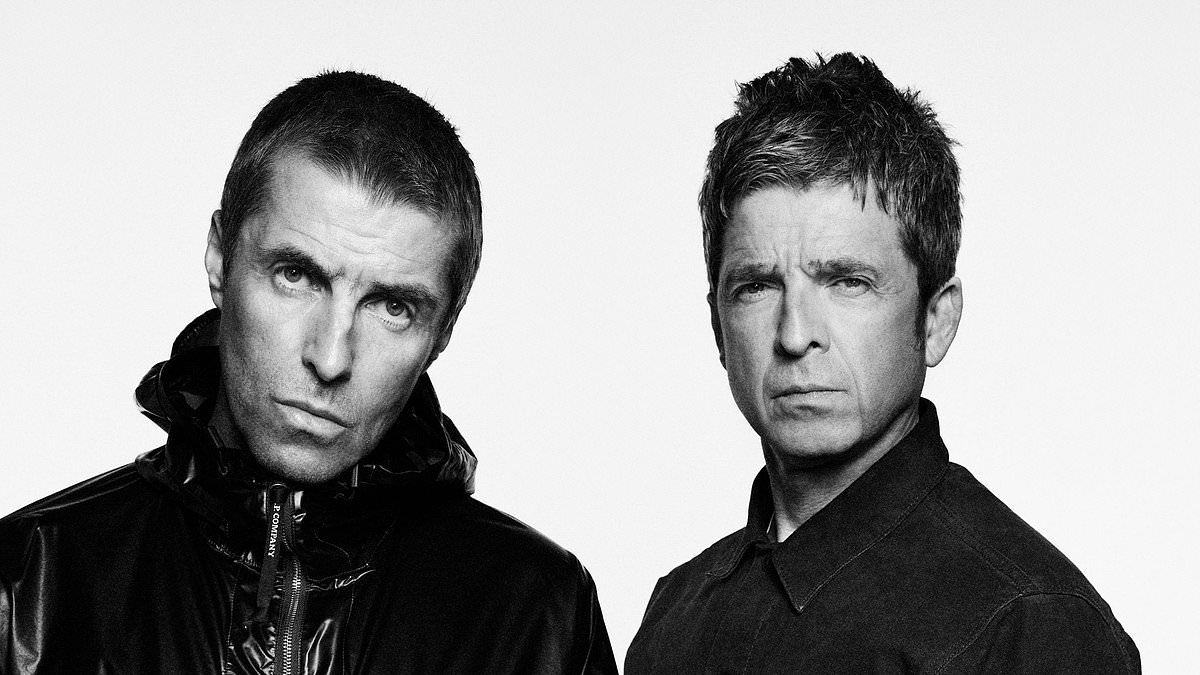Oasis fans are outraged after an old tweet from Liam Gallagher criticising his brother for selling tickets for $350 has resurfaced.
The tweet dates back to 2017, during the midst of the Oasis frontmen’s long-running feud.
Liam slammed his brother for charging $350 (£266) for a gig in America.
‘350 dollars to go and see rkid in USA what a c*** when will it all stop as you were LG x,’ Liam wrote on Twitter/X.
It comes amid controversy after Noel and Liam announced an Oasis reunion and some 14million people across the UK battled to get their hands on coveted tickets.
Fans who struggled through hours-long queues for tickets for the 2025 tour were shocked at the cost of general standing tickets which had risen as a result of Ticketmaster’s dynamic pricing policy, which saw the cost of tickets more than double in some cases.
For the Manchester shows, a general admission standing ticket was expected to cost £150 but that price had risen to £355 under the dynamic pricing policy that reflects increased demand.
Oasis fans accused Liam of hypocrisy for the post as he has now sold tickets that matched the price of Noel’s 2017 American gig.
One person wrote in response to the resurfaced post: ‘This hasn’t aged well…’
Another said: ‘£380 for a ‘reactively priced’ GA when people had spent 3 hours queuing. What sort of c*** would do that?’
Someone added: ‘Well this is evergreen.’
And another added: ‘Not ageing well, Liam.’
At least 450 people have since submitted official complaints to the advertising watchdog about dynamic pricing.
The Government has pledged to look into the use of surge pricing in its forthcoming review of the secondary gig sales market.
Ticketmaster claims prices are set by the event organiser, and it has been claimed that Oasis could have rejected the pricing model and kept prices lower for fans.
But other bands have previously hit out at dynamic pricing, including The Cure’s frontman Robert Smith. He once labelled it a ‘greedy scam’, adding: ‘All artists have the choice not to participate – if no artists participated, it would cease to exist.’
A spokesperson for the UK’s regulator of advertising confirmed the complainants argued that the adverts made ‘misleading claims about availability and pricing’.
They added: ‘We’re carefully assessing these complaints and, as such, can’t comment any further at this time. To emphasise, we are not currently investigating these ads.’
Ticketmaster first said in 2011 that it was planning to implement ‘dynamic pricing’ in the US, which meant prices could both rise and fall based on demand.
But the concept only started to be noticed in the UK over a decade later when it began being used in 2022 for high-demand gigs by the likes of Harry Styles, Bruce Springsteen and Coldplay.
Ticketmaster uses a form of dynamic pricing called ‘demand-based pricing’ which means it can significantly raise the cost of a ticket for a hotly-anticipated event while a sale is ongoing, and still sell out – as was the case with the Oasis gigs.
Ticketing and security expert Reg Walker told the Guardian: ‘The reason they push it is that if you sell a ticket at £100, at 10 per cent service charge you get £10. If you sell it at £400, you’re getting £40.
‘So it’s in Ticketmaster’s interests to push this model. I’m not convinced that artists know what they’re getting into.’
An explanation by Ticketmaster about the ‘in-demand standing ticket’ price for Oasis said: ‘The event organiser has priced these tickets according to their market value. Tickets do not include VIP packages. Availability and pricing are subject to change.’
When asked about this issue, a Ticketmaster spokesperson said the firm does not set prices and shared a link to its website where it says costs can be ‘fixed or market-based’.
Ticketmaster also said artists decide whether or not to opt for the practice, where the value of the ticket changes based on the demand.
It is claimed that Oasis – hailed by some as working class heroes – could have rejected the dynamic pricing model and kept prices lower for fans.
Ticketmaster is secretive about how its dynamic pricing model works, but it claims event organisers set the prices. It is therefore likely that the ticket costs are adjusted automatically within a range that is determined by the promoter before they go on sale.
